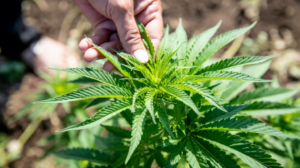From Forbes by Joan Oleck March 23 2023
According to historians, the Shinnecock Indian Nation has lived on eastern Long Island for 10,000 years, rather a longer residency than the denizens of the surrounding uber-wealthy and celebrity-studded “Hamptons” can claim.
Yet longevity has provided little leverage to the tribe’s leaders in recent years as they tried and failed to establish a gambling casino on or near their 1,000-acre tribal territory, located mostly on the “Neck,” a peninsula adjoining Southampton, New York, with its upscale restaurants, boutiques and private beach clubs.
Now, a newer project by the 1,589-member tribe – half of whom live on the Neck – is meeting far less resistance from the neighbors: the region’s first adult-use cannabis dispensary, owned and run by the tribe.
The 5,000-square-foot “Little Beach Harvest” retail outlet, located just off the heavily trafficked Sunrise Highway, is slated to open in May, and assuming that the tribe’s own regulatory division approves, will offer adult-use cannabis products together with the medicinal cannabis ones already being sold elsewhere locally.
Leading the effort are two women: Chenae Bullock, a tribal member and the project’s managing director; and Denver-based Amy Larson, senior vice president of marketing and communications for TILT Holdings, a cannabis brand-building consultancy advising the tribe. Given that March is Women’s History Month, and given cannabis’s long history with indigenous women healers, Bullock and Larson during a recent Zoom interview had reason to celebrate female power.
“We are living in a time where it requires nurture and matriarchal energy to heal the world, and through cannabis,” Bullock said, “because what we use from cannabis [in commercial production] is the female plant anyway.
“To never lose sight of that part of the business is important, and so I would say to any of the men that it’s important to recognize that female energy – and us being on the project is amazing.”
Larson, for her part, spoke of “the connection between moms and mother Earth and this feminine plant [being] very holistic and natural.” She added: “We need to give each other grace, along with the support we give each other. That’s going to be our direction onward.”

That direction is enjoying a head start over other legal cannabis businesses on Long Island vying for state adult-use licenses, which only became available last November. The reason: Indian tribes are sovereign nations and not subject to state regulation. That’s one reason other New York tribes, the Oneida and Seneca, already host adult use dispensaries. (Many unlicensed nontribal operators do as well.)
So far, the state’s Office of Cannabis Management has granted 66 adult use licenses, with five already operating, in New York City, Ithaca and Binghamton – but none as yet on Long Island. “In the next few weeks, those five will be joined by many more,” statewide, said Aaron Ghitelman, a spokesman for the OCM, speaking by phone.
Certainly, the prospect of any unregulated dispensary, tribal or otherwise, raises concerns about contaminated cannabis and about specific products, like gummies, not being what they claim to be. In response, Larson said that TILT is pursuing relationships with testing labs and will implement standards equivalent to New York’s for wholesale products, packaged products, bulk flower and biomass. In time, that raw cannabis will be cultivated, manufactured and packaged under the Little Beach Harvest brand by the Shinnecock themselves, in a vertically integrated model Bullock believes is a first for the region’s tribes.
Building out those facilities will be one of the best parts of the project, she said. “The surrounding area has few dispensaries [able to] provide careers; they’re more seasonal,” she said of the local job picture. “We’re going to be the first of our kind, to my knowledge.”
The Shinnecock operation, she added, will help both medicinal cannabis patients and “people looking for jobs, because there aren’t enough yearlong jobs in the area.”
Bullock draws her Indian ethnicity from her mother (her father is African American) so another plus from cannabis will be the opportunities it provides to connect the Shinnecock to their fellow Algonquian Federation tribes which proliferate across the Eastern U.S. and eastern Canada. Those tribes have always been trading partners, Bullock pointed out.
Her own tribe has a holding company which she says dates from President Barack Obama’s push for tribes to charter their own enterprises. Currently, the tribe has Shinnecock Monument, a giant electronic advertising sign on Highway 27 – which has not been popular with the surrounding towns intent on preserving the roadway’s natural setting,

The dispensary will likely be more welcome– that remains to be seen. But Bullock is optimistic, viewing cannabis as a connecting force between people, women especially. The Shinnecock, whose name translates as “People of the Stony Shore,” have a long history and many traditions there on the southeast shore of Long Island.
Medicinal cannabis is one of those traditions. Bullock describes how elders have told her that her own grandfather, Ferdinand Lee, grew medicinal cannabis and supplied it to other tribal members. In particular they have told her the story of how her grandfather once left a container of his harvested material in the family kitchen. Bullock’s grandmother was there cooking clam chowder and reached for what she thought was basil to complete her recipe.
“Everybody at the party had the time of their life,” Bullock says, laughing at the story’s punchline.

















Comments are closed.